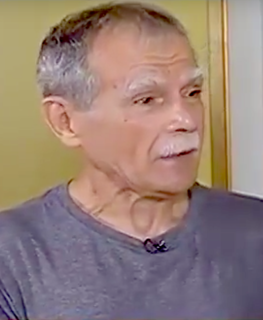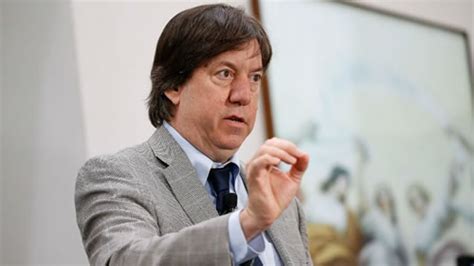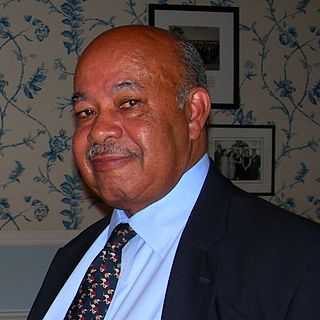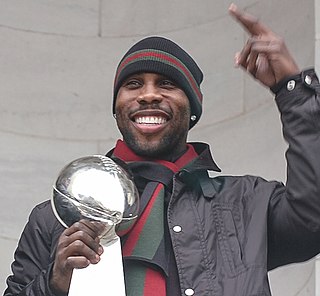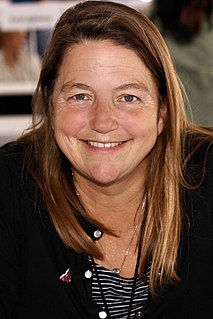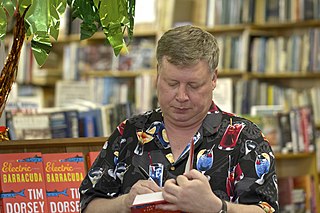Top 387 Hurricane Quotes & Sayings - Page 7
Explore popular Hurricane quotes.
Last updated on April 16, 2025.
Love is all around you like the air and is the very breath of your being. But you cannot know it, feel its unfeeling touch, until you pause in your busy-ness, are still and poised and empty of your wanting and desiring. When at rest the air is easily offended and will flee even from the fanning of a leaf, as love flees from the first thought. But when the air or love moves of its own accord it is a hurricane that drives all before it.
I am surprised at the number of Puerto Ricans that are moving out of Puerto Rico still. I thought that, by now, the immigration of Puerto Ricans had decreased a little bit. But, no, with a hurricane, it has increased even more. So, I see the financial institutions, especially the hedge funds, moving into Puerto Rico with all the - with all the force, knowing that their investments towards the future are going to be multiplied or probably elevated to quantities beyond any notion of how capital works.
Right-thinking people are not supposed to discuss any meteorological or geophysical event - a hurricane, a wildfire, a heat wave, a drought, a flood, a blizzard, a tornado, a lightning strike, an unfamiliar breeze, a strange tingling on the neck - without immediately invoking the climate crisis. It causes earthquakes, plagues and backyard gardening disappointments. Weird fungus on your tomato plants? Classic sign of global warming.
To survive, to avert what we have termed future shock, the individual must become infinitely more adaptable and capable than ever before. We must search out totally new ways to anchor ourselves, for all the old roots - religion, nation, community, family, or profession - are now shaking under the hurricane impact of the accelerative thrust. It is no longer resources that limit decisions, it is the decision that makes the resources.
At today's prices for medicines, doctors and hospitals-if the latter are available at any price-only millionaires can afford to be hurt or sick and pay for it. Very few people want socialized medicine in the U.S. But pressure for it is going to appear with the same hurricane force as the demand for pollution control if the medicine men and hospital operators don't take soon some Draconian measures... At the present rate of doctor fees and hospital costs under Medicare and Medicaid plans [taxpayers] are shovelling in billions with nothing but escalation in sight.
It occurs to me that the peculiarity of most things we think of as fragile is how tough they truly are. There were tricks we did with eggs, as children, to show how they were, in reality, tiny load-bearing marble halls; while the beat of the wings of a butterfly in the right place, we are told, can create a hurricane across an ocean. Hearts may break, but hearts are the toughest of muscles, able to pump for a lifetime, seventy times a minute, and scarcely falter along the way. Even dreams, the most delicate and intangible of things, can prove remarkable difficult to kill.
It began as most thing begin. Not on a dark and stormy night. Not foreshadowed by ominous here comes the villain music, dire warning at the bottom of a teacup, or dread portents in the sky. It began small and innocuously, as most catastrophes do. A butterfly flaps its wings somewhere and the wind changes, and a warm front hits a cold front off the coast of western Africa and before you know it you’ve got an hurricane closing in. By the time anyone figured out the storm was coming, it was too late to do anything but batten down the hatches and exercise damage control.
A little rain, a little blood. Black fingernails in August; and going berserk, going bananas. As if entrapped in a tropical heatwave, with dozens of whirlwinds swirling in one’s mind, one thinks of a way out, or a way in: out of the scorching bosom of a volcano, and in – into the centre of a raging hurricane. And tracing the labyrinthine ways of your mind, the haphazard vagaries of your thoughts at ease, the odds and ends of your mental surplus you carelessly throw at the world, one wants to be at a loss, in a maze; amazed, and amazingly unabashed.
This hill crossed with broken pines and maples lumpy with the burial mounds of uprooted hemlocks (hurricane of '38) out of their rotting hearts generations rise trying once more to become the forest just beyond them tall enough to be called trees in their youth like aspen a bouquet of young beech is gathered they still wear last summer's leaves the lightest brown almost translucent how their stubbornness has decorated the winter woods.
I try and remind our viewers that climate is always in a state of flux and yes, the world has warmed over the last 25 years but claiming that Katrina is a product of global warming is absurd. We have had much stronger hurricanes hit the United States in the past, the Labor Day or Keys hurricane of 1935 and Camille in 1969 to name just two. There is much more development now on our shores.
Recent events in the aftermath of Hurricane Katrina have reaffirmed for me, however, the complete folly of any Republican strategy to increase black representation in the Republican Party by appeals based on race. Whatever the name- 'African American Outreach' or 'Black Republicans for Bush'- any effort to attract blacks or any other ethnic group to the Republican party, based on explicit or implicit appeals to race or ethnic identity, are not only a waste of time and resources, but are also misguided and potentially quite damaging to the nation.
Advance warning of Katrina's path was wrested from mute Nature by meteorological calculations and satellite imagery. God told no one of His plans. Had the residents of New Orleans been content to rely on the beneficence of God, they wouldn't have known that a killer hurricane was bearing down upon them until they felt the first gusts of wind on their faces. And yet, as will come as no surprise to you, a poll conducted by The Washington Post found that 80 percent of Katrina's survivors claim that the event only strengthened their faith in God.
Life is a hurricane, and we board up to save what we can and bow low to the earth to crouch in that small space above the dirt where the wind will not reach. We honor anniversaries of deaths by cleaning graves and sitting next to them before fires, sharing food with those who will not eat again. We raise children and tell them other things about who they can be and what they are worth: to us, everything. We love each other fiercely, while we live and after we die. We survive; we are savages.
I often notice how students can gain the capacity to use certain critical methodologies through engaging with very different texts - how a graphic novel about gentrification and an anthology about Hurricane Katrina and a journalistic account of war profiteering might all lead to very similar classroom conversations and critical engagement. I'm particularly interested in this when teaching law students who often resist reading interdisciplinary materials or materials they interpret as too theoretical.
I do think the smaller-scale studio works have that incredible love of data crunching, whereas I would say the large-scale earthworks tend to be much more stripped-down. With the mappings, as connected as they are to a much more analytical idea, what's a map? And can I make a map about time? I think the first time was Hurricane Sandy, the flood plane; a moment in time, but indelibly marked on any of us who were in the city. Mapping time is something that I'm really interested in.
The America I do want to live in, is seeing how people respond to the victims of Hurricane Harvey. People of all races, all colors, all religions. You don't care what a person looks like, what their beliefs are - I'm helping them, because they are my fellow brother, or because they need my help. That's the America I want to live in. I don't want to live in Charlottesville, where you hate somebody because of the way that they choose to live their life. That's not a place where I want to live.
I believe that New Orleans had a level of sin that was offensive to God, that there was to be a homosexual parade on the Monday that the Katrina came, and the promise of that parade was that it was going to reach a level of sexuality never demonstrated before in any of the other Gay Pride parades. So I believe that the judgment of God is a very real thing, and I believe that the Hurricane Katrina was, in fact, the judgment of God against the city of New Orleans.
The President may indeed in one respect resemble the commander of an army in peace, but in another and more essential sense he resembles the commander of a ship at sea. He must have a helm to grasp, a course to steer, a port to seek. He must sooner or later be convinced that a perpetual calm is as little to his purpose as a perpetual hurricane, and that without headway the ship can arrive nowhere.
Sometimes no matter how well you prepare, no matter how conservative your decision making, no matter how few Y chromosomes are along on your trip, you can still find yourself in a mud slide or a hurricane without a dry piece of clothing to your name. But those of us who have given our time and usually our hearts to outdoorsmen over the years know that, for many of them, it's not really a wilderness trip unless, MacGyver-like, they have to make a fire out of a pair of shorts, a glow stick, and a ketchup bottle; it's not really an adventure until someone gets airlifted out.
For a long time, the scientists have been telling us global warming increases the temperature of the top layer in the ocean, and that causes the average hurricane to become a lot stronger. So, the fact that the ocean temperatures did go up because of global warming, because of man-made global warming, starting around in the '70s, and then we had a string of unusually strong hurricanes outside the boundaries of this multi-decadal cycle that is a real factor; there are scientists who point that out, and they're right, but we're exceeding those boundaries now.
But you have to understand, mental illness is like cholesterol. There is is good kind and the bad. Without the good kind- less flavor to life. Van Gogh, Beethoven, Edgar Allen Poe, Sylvia Plath, Pink Floyd (the early Piper at the Gates of Dawn line up), scientific breakthroughs, spiritual revolution, utopian visions, zany nationalism that kills millions- wait, that’s the bad kind. Tim Dorsey (Hurricane Punch)
Whether we're talking about what the role of the government is, what you think of the United Nations, political leaders or how to respond to [Hurricane] Katrina and whether it had anything to do with race, across a wide variety of issues we see differences between mainstream black and white American opinion that dwarfs anything in American public opinion, period. Democrat versus Republican, men versus women, conservative versus liberal, the black/white divide is the biggest, one of the biggest in the world, and certainly the largest gap in the United States.
To go out of your mind once a day is tremendously important, because by going out of your mind you come to your senses. And if you stay in your mind all of the time, you are over rational, in other words you are like a very rigid bridge which because it has no give; no craziness in it, is going to be blown down by the first hurricane.
After Hurricane Katrina, I wanted to go back to New Orleans to help musicians return to the city. But Andrew Young advised me, "If you want to help people, go work at an investment bank." His contrarian advice opened my eyes to the importance of capital. "Learn how to make some money before you give it away." I learned that you can bring about good in the world especially if you have a paycheck.
Moreover, it is so important that people have the opportunity to share their stories and have them documented. There have been large-scale oral history projects after many events, from September 11th to Hurricane Katrina. Many oral history projects are much more confined, but equally valuable. We can learn about different working conditions, living conditions, trauma experiences and much more through oral history.
I wanted so badly to lie down next to her on the couch, to wrap my arms around her and sleep... Just sleep together, in the most innocent sense of the phrase. But I lacked the courage and she had a boyfriend and I was gawky and she was gorgeous and I was boring and she was endlessly fascinating. So I walked back to my room and collapsed on the bottom bunk, thinking that if people were rain, I was drizzle and she was a hurricane.
The stark and tragic images of human suffering in the aftermath of Hurricane Katrina have reminded us yet again that civil rights and equal rights are still the great unfinished business of America. The suffering has been disproportionately borne by the weak, the poor, the elderly and infirm, and largely African-Americans, who were forced by poverty, illness, unequal opportunity to stay behind and bear the brunt of the storm's winds and floods. I believe that kind of disparate impact is morally wrong in this, the richest country in the world.

